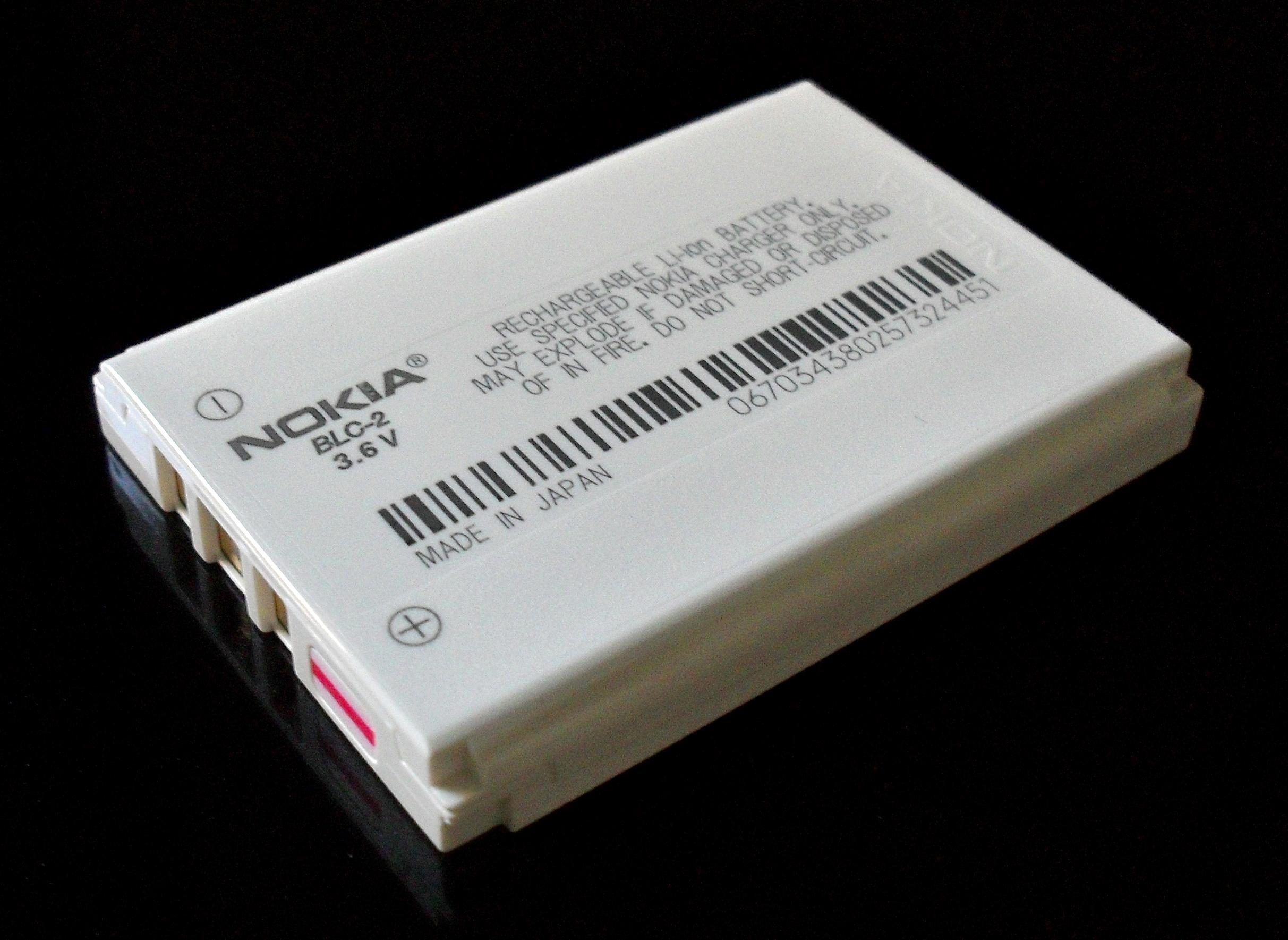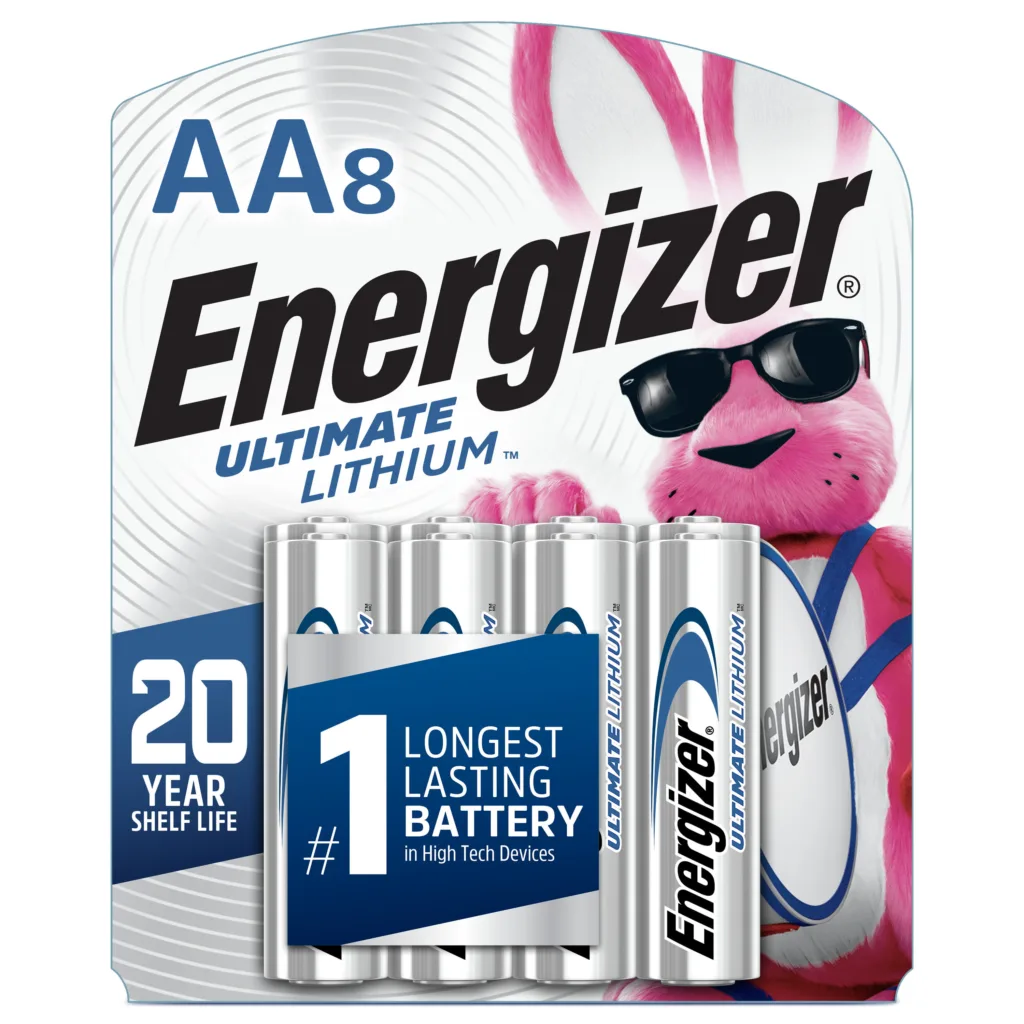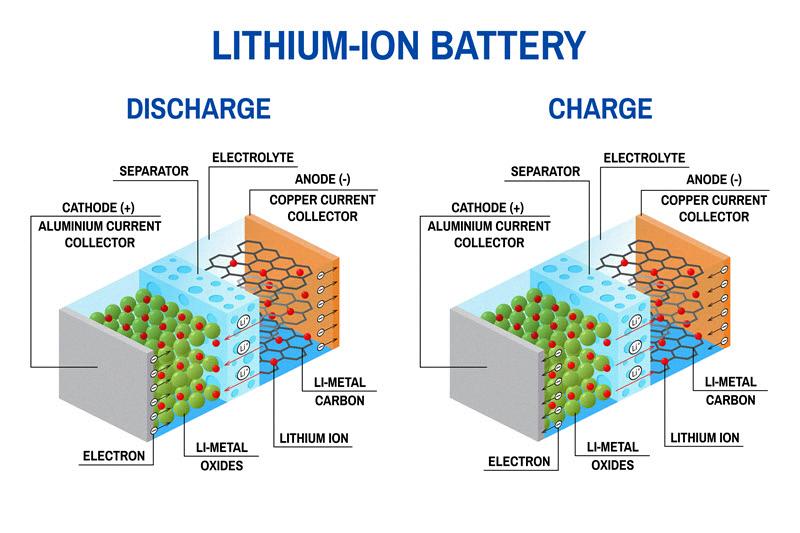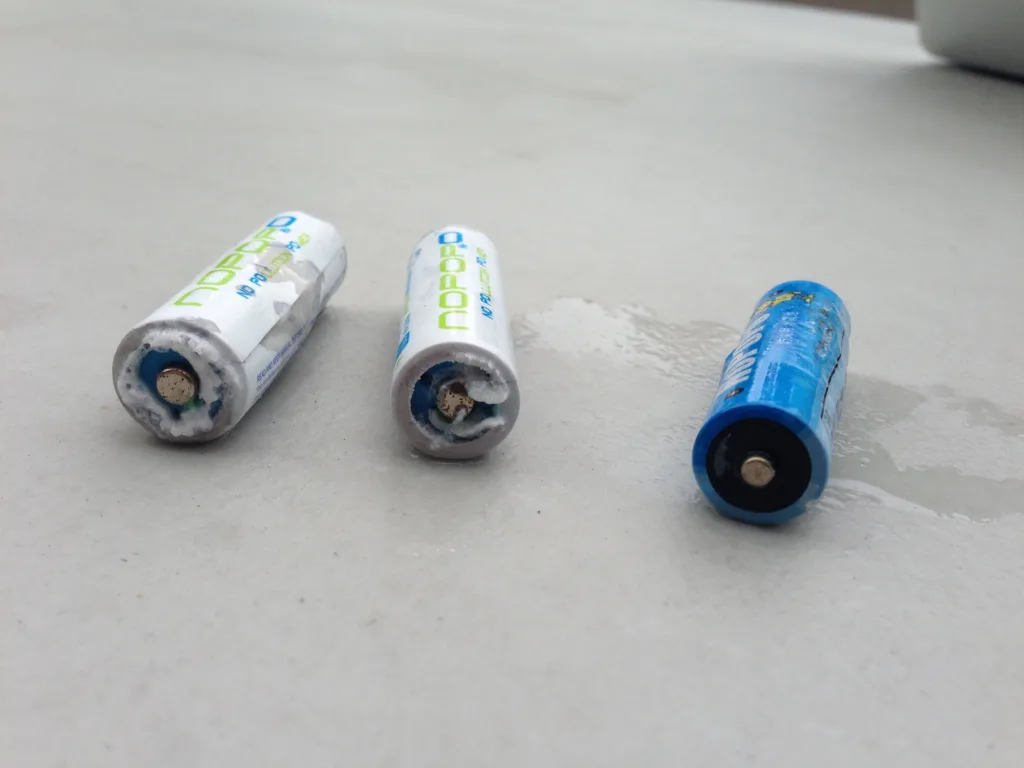Lithium-ion batteries have revolutionized the way we use portable electronic devices. From smartphones to laptops, these batteries are now the go-to power source for almost all modern gadgets. But with great power comes great responsibility, and it’s important to understand the potential hazards associated with these batteries.
One question that often comes up is whether or not lithium-ion batteries leak. The short answer is that they can, but the likelihood of leakage is much less compared to other types of batteries, such as alkaline.
Lithium-ion batteries are composed of a positive electrode made of lithium cobalt oxide, a negative electrode made of graphite, and a liquid electrolyte that carries the lithium ions between the two electrodes. The electrolyte is typically a mixture of organic solvents and lithium salts, which are highly conductive and allow for the flow of electricity.
The reason why lithium-ion batteries are less prone to leakage compared to alkaline batteries is that the liquid electrolyte inside is not prone to off-gassing. This means that you do not get the same pressure build-up inside the case, which can cuse the battery to rupture and leak.
However, there are still some situations where lithium-ion batteries can leak. For example, if the battery is damaged or punctured, it can cause the electrolyte to leak out. Similarly, if the battery is exposed to extreme temperatures, it can break down the electrolyte and cause it to escape from the battery.
If a lithium-ion battery does leak, it can be dangerous. The electrolyte is a flammable liquid, which can ignite if it comes into contact with a spark or open flame. It can also cause skin and eye irritation, so it’s important to handle the battery with care if you suspect it has leaked.
To prevent lithium-ion batteries from leaking, it’s important to store them in a cool, dry place away from direct sunlight and heat sources. Avoid dropping or crushing the battery, and never attempt to puncture or open it. If you notice any signs of swelling, leaking or overheating, stop using the battery immediately and seek professional help.
While lithium-ion batteries are less prone to leakage compared to alkaline batteries, they can still leak under certain circumstances. It’s important to handle these batteries with care and to take the necessary precautions to prevent any potential hazards.
The Consequences of a Leaking Lithium-ion Battery
When a lithium-ion battery leaks, it can release electrolytes which are highly flammable and can cause chemical burns if they come into contact with skin. The leakage can also corrode the battery’s internal components, reducing its efficiency or rendering it completely useless. Furthermore, if the electrolytes come into contact with other metals or substances, they can cause a heat reaction which can result in fires or explosions. It is important to handle lithium-ion batteries carefully, and to dispose of them properly to avoid any potential hazards.

Source: en.wikipedia.org
The Causes of Lithium-ion Battery Leakage
Lithium-ion batteries can leak due to various reasons such as physical damage, age, or extreme temperatures. When a battery is physically damaged, the electrolyte inside the battery can leak out. Similarly, as the battery ages, it starts to break down, which can also cause the electrolyte to escape from the battery. Moreover, if a lithium battery gets too hot, this can also cause it to leak. Extreme temperatures can break down the electrolyte and cause it to escape from the battery. Therefore, it’s essential to store lithium batteries in a cool, dry place to prevent them from leaking.
Signs of a Leaking Lithium Battery
There are a few signs that can indcate that your lithium battery is leaking. The first thing you may notice is a strong, sweet smell, similar to that of bubble gum. This smell is caused by the electrolyte inside the battery, which is a mixture of chemicals that can be harmful if they come into contact with your skin or eyes.
Another sign that your lithium battery is leaking is a build-up of a white or grayish powder around the battery contacts or on the surface of the battery itself. This powder is a by-product of the chemical reaction that occurs inside the battery and can be corrosive if it makes contact with your skin or eyes.
If you notice any of these signs, it’s important to handle the battery with care and avoid touching the leaking substance. You should also dispose of the battery properly, following the guidelines for hazardous waste in your area. It’s worth noting that a leaking lithium battery can be dangerous, as it can lead to an explosion or fire if not handled correctly. So, if you’re unsure of what to do, it’s best to seek advice from a professional.
Are Lithium Batteries Less Prone to Leakage?
Yes, lithium-ion batteries are less likely to leak compared to traditional alkaline batteries. This is because the liquid electrolyte inside lithium-ion batteries is not prone to off-gassing, which means you do not get the same pressure build-up inside the battery case. Alkaline batteries, on the oher hand, are more prone to leakage because they use a liquid electrolyte that can off-gas and cause pressure build-up inside the battery case. This pressure can eventually rupture the battery case, leading to leaks. However, it is worth noting that while lithium-ion batteries are less likely to leak, they can still be damaged or punctured, which can cause them to leak. Therefore, it is important to handle lithium-ion batteries with care and to dispose of them properly if they are damaged or no longer functioning.
Finding a Battery Brand That Does Not Leak
Energizer® is a battery brand that is designed to prevent damaging leaks. They offer a No Leak Guarantee that ensures their batteries will not leak and damage your devices. This means you can use Energizer® batteries with confidence, knowing that your valuable devices are protected. Whether you are using toys, digital cameras, or other important devices, Energizer® batteries provide long-lasting power and reliable protection against leaks. So if you’re looking for a battery brand that you can trust to keep your devices safe and powered, Energizer® is a great choice.

The Safety of Touching a Lithium Battery
It is generally safe to touch a lithium battery. The outer casing of lithium batteries is designed to be non-conductive and is unlikely to cause harm to skin upon contact. However, it is important to note that you shoud always handle lithium batteries with care and avoid puncturing or damaging the battery in any way. If a lithium battery is damaged, it can release harmful chemicals and should be disposed of properly. Additionally, it is recommended to wash your hands after handling lithium batteries to avoid any potential contamination.
Do Lithium Batteries Require Ventilation?
Yes, lithium batteries do need to be vented. Although they don’t produce gas like other types of batteries, they still require proper ventilation to prevent thermal runaway. This is because if the battery gets too hot, it can enter a critical condition and explode. Proper ventilation allows heat to dissipate and prevents the battery from overheating. Therefore, it is important to make sure that lithium batteries are used and stored in well-ventilated areas to prevent any potential hazards.
The Largest Problem with Lithium-ion Batteries
The largest problem with lithium-ion batteries is their sensitivity to high temperatures and their potential to becme flammable. This means that if a lithium-ion battery pack is exposed to extreme heat or other adverse conditions, it can degrade much faster than it normally would, potentially resulting in a dangerous situation. Additionally, if a lithium-ion battery pack fails, it has the potential to burst into flames, which can cause widespread damage and harm to people and property. Due to these inherent risks, it is important to handle and store lithium-ion batteries carefully and to take precautions to prevent them from being exposed to high temperatures or other harmful conditions.
The Major Problems with Lithium Batteries
Lithium batteries, while efficient and widely used in electronic devices, pose a major problem when it comes to disposal. These batteries contain toxic metals such as cobalt, nickel, and manganese, which can contaminate water supplies and ecosystems if they leach out of landfills. Furthermore, improper disposal of lithium batteries has been linked to fires in landfills and battery-recycling facilities. This highlights the importance of properly disposing of lithium batteries to prevent harm to the environment and human health.

Source: analyteguru.com
Likelihood of Lithium Battery Explosion
Lithium-ion batteries have a very low likelihood of exploding or catching fire, with a failure rate of less than one in a million. This is due to the advanced safety features built into thee batteries, such as thermal protection, overcharge protection, and short-circuit protection. While there have been some high-profile incidents of lithium-ion battery fires and explosions, these are relatively rare and often occur due to improper handling or faulty manufacturing. It’s important to note that any incident involving a lithium-ion battery is still a cause for concern, as even one fire or explosion can have serious consequences. However, with proper care and handling, the risk of a lithium-ion battery failure is extremely low.
The Smell of a Leaking Lithium-ion Battery
A leaking lithium-ion battery can emit a sweet, chemical odor similar to the smell of nail polish remover or a fruity scent. This odor is caused by the release of electrolytes, whch are flammable and highly reactive chemicals contained within the battery. In addition to the smell, a leaking lithium-ion battery may also emit smoke or heat, and should be handled with extreme caution to avoid the risk of fire or explosion. If you suspect that your lithium-ion battery is leaking, it is important to remove it from the device immediately and dispose of it properly to prevent any potential hazards.
Do Lithium Batteries Heat Up Before Explosion?
Yes, lithium batteries can get hot before they explode. This is because of a phenomenon called thermal runaway, which occurs when the battery’s temperature increases rapidly and uncontrollably. This can happen due to a variety of reasons, such as overcharging, short-circuiting, or physical damage to the battery. As the temperature rises, the battery’s internal components start to break down, releasing more heat and causing a chain reaction that can eventually lead to an explosion. This is why it is important to handle lithium batteries with care and to follow the manufacturer’s guidelines for charging and storage. If a lithium battery starts to get abnormally hot, it shoud be removed from use immediately and allowed to cool down in a safe location.
The Risk of Leaking Batteries
No, not all batteries eventually leak. The likelihood of a battery leaking depends on varous factors such as the age, condition, and quality of the battery, as well as how it’s stored and used. Generally, well-maintained batteries that are stored in cool, dry places and not subjected to extreme temperatures or physical damage are less likely to leak. However, it’s important to note that all batteries have a finite lifespan and will eventually degrade over time, which can increase the risk of leakage. It’s always a good idea to regularly inspect your batteries for any signs of damage or corrosion and replace them as needed to prevent potential leaks.
Are Lithium Batteries a Fire Risk?
Yes, lithium-ion batteries do pose a fire risk. This is because they contain highly flammable electrolytes that can cause what is known as ‘thermal runaway’. This is when the battery rapidly overheats and creates a self-sustaining fire that cannot be easily extinguished by water spray or use of a fire extinguisher. The risk of fire can increase if the battery is damaged or punctured, or if it is exposed to high temperatures or external heat sources. It is important to handle lithium-ion batteries with care and to follow the manufacturer’s instructions for charging, storage, and disposal.
What to Put in a Plastic Bag with a Leaking Lithium Battery
If you notice a leaking lithium battery, it’s crucial to take immediate actions to prevent any harm or damage. One of the recommended measures is to seal the battery in an airtight plastic bag. But, before sealing the battery, you shuld add a substance that can absorb the electrolyte and prevent any further leakage.
The ideal substances to use in such situations are dry sand, chalk powder (CaCO3), or vermiculite. These materials have excellent absorbent properties and can effectively neutralize the acidic electrolyte that may leak out of the battery.
You should add enough of the absorbent material to cover the battery completely and ensure that it’s in contact with the leaking area. Once you have added the absorbent material, carefully seal the plastic bag and dispose of it in a safe and appropriate manner.
It’s important to note that lithium batteries can be hazardous, and you should always handle them with care. If you’re unsure of how to handle a leaking battery or don’t have the necessary protective equipment, seek professional assistance.

Conclusion
In conclusion, lithium-ion batteries are a common power source for many electronic devices due to their high energy density and long lifespan. However, they also pose certain hazards if mishandled or damaged. Overheating, overcharging, and physical damage can cause heat reactions that lead to fires or explosions. Therefore, it is important to store and use lithium-ion batteries properly to avoid any potential hazards. Despite these risks, lithium-ion batteries are still a reliable and efficient power source, as long as safety precautions are taken into consideration.
